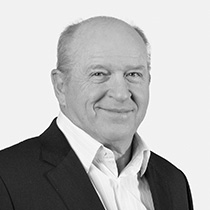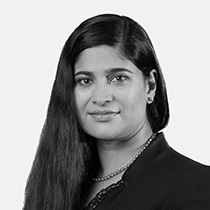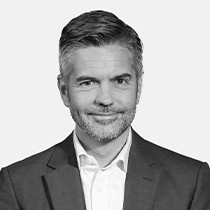Covid-19 continues to delay a much-desired ‘return to normal’ in the global economy. The highly transmissible Omicron variant has resulted in another pause in a year marked by economies lurching between stop-and-start phases. While the virus is disruptive, we are learning that vaccines and boosters are at least successful in mitigating severe illness. As the percentage of the vaccinated population increases, we think that 2022 will continue the path of emergence from the pandemic.
Despite this unsettled environment, we have seen a robust economic recovery with much less scarring than anticipated when the pandemic began. As said before though, things are still far from normal and new risks are emerging. Surging consumer demand, coupled with supply chain bottlenecks, high energy prices and employee shortages are leading to increasing global inflation. Central banks previously indicated a willingness to tolerate higher inflation, but are also realising that allowing things to run too hot may lead to increased recessionary risks. As such, we have seen Chairman Jerome Powell indicate that the US Federal Reserve Board will start tapering asset purchases and raising interest rates in the course of 2022. Global bonds which were, in our view, already expensive to start with, will provide poor returns in this environment. Global equity indices also look full after another year of high returns. However, the concentration of returns to a few large stocks in global equity markets means there is still a broad opportunity set for active managers focused on long-term valuations. The Capital Plus Fund's offshore allocation sits at 25% and Balanced Defensive's is 24%, with the majority of this exposure in global and emerging market equities. A portion of this equity exposure is protected by put options, which provide some portfolio insurance in the event of a general market selloff.
On the local front, the economic growth we saw in the first half of last year has rapidly unwound in the second half. The rioting and looting in the third quarter were further compounded by loadshedding and the inopportune ‘red list’ travel restrictions imposed on South Africa (SA) at the start of our tourist season. We expect slower domestic growth this year, supported by rising household consumption expenditure and some improvement in investment spend. Longer term, our outlook for GDP growth remains very muted, as we are not seeing evidence of the bold policy reform needed to structurally uplift the economy. Inflation, though, remains well contained at around the 5% level and the projected interest rate trajectory remains benign.
Amidst the enormous uncertainty of the year outlined above, Balanced Defensive has provided returns of 12.7% for the 12 months, well ahead of its target of inflation +3%. Pleasingly, it has also exceeded its target over all meaningful long-term time periods. Capital Plus has provided returns of 16.0% over the same period, well ahead of its target of inflation +4%. While it is still behind its target return over longer time horizons (five years plus), this year’s performance has helped to close that gap. Both funds have benefited from their high exposure to risk assets, in particular SA equities, where both allocation and selection have contributed. We continue to think SA equities are attractively valued, with many investment opportunities, particularly in good quality global businesses and select defensive domestic companies. Anglo American has been the top equity contributor to the funds' performance over the last year and is a top five equity holding. The share price has re-rated over the last five years on the back of rising commodity prices and good delivery by management on production growth, cost control and increasing shareholder returns in the form of dividends and buybacks. We are mindful that Anglo American is a cyclical commodity share and that current share prices reflect a positive outlook. We still think valuations are supportive, but will adjust the position sizing as the margin of safety decreases.
Balanced Defensive and Capital Plus have allocations of 44% and 28.1% to domestic fixed income instruments, respectively, with the largest exposure being domestic bonds. Domestic government bonds continue to offer very high real yields, but one needs to be mindful of longer-term fiscal pressures that could impact returns. With the fund’s full exposure to risk assets via equities, we have purposely tried to limit duration risk on our fixed income selection. We have managed to do this and still have fixed income exposure that provides a healthy yield ahead of our target.
Both Balanced Defensive and Capital Plus have delivered commendable performance over the last year, comfortably meeting their mandates. This has been achieved by having a considered mix of income and growth assets and a judicious approach to instrument selection. We are confident that the consistent application of this approach will allow us to deliver on their respective CPI +3% and CPI + 4% mandates over the medium term.
 South Africa - Personal
South Africa - Personal




